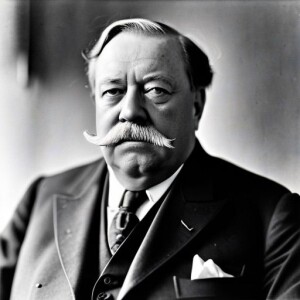William Howard Taft, the 27th President of the United States, was a man of many talents. His legal expertise and dedication to the rule of law were evident throughout his career, and he served as a judge, Solicitor General, and Secretary of War under President Theodore Roosevelt before assuming the presidency himself in 1909.
Taft’s presidency was marked by his focus on trust-busting, conservation, and foreign policy. He continued many of the policies of his predecessor, Theodore Roosevelt, including enforcing the Sherman Antitrust Act and expanding national parks and forests. But Taft was also a trailblazer, introducing the 16th Amendment, which established a federal income tax.
One of Taft’s most notable achievements on the world stage was negotiating the Knox–Porter Resolution, which officially ended the Russo-Japanese War. He also established the Dollar Diplomacy policy, which aimed to promote American business interests abroad by providing financial support to countries in need.
Despite these successes, Taft’s presidency was not without controversy. He faced criticism from both progressive and conservative factions within his own party, and his relationship with Roosevelt became strained. But Taft remained committed to the rule of law and his contributions to American jurisprudence cannot be denied.
After leaving office, Taft went on to serve as a law professor at Yale University and eventually became Chief Justice of the United States from 1921 to 1930. While his legacy may be mixed, there is no denying that Taft was a man of great accomplishments and a true champion of the law.

